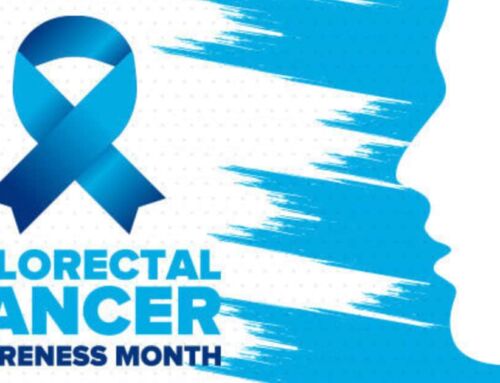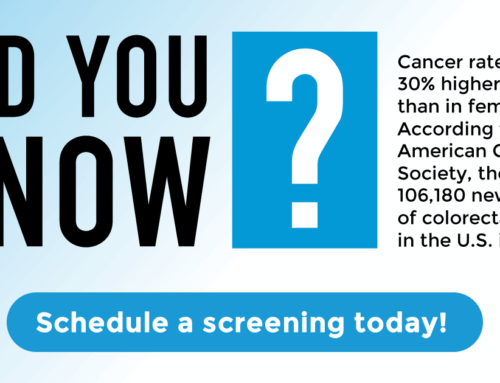My patients often ask me if certain digestive symptoms like rectal bleeding can be an indicator for colon cancer. The short answer yes, but most likely that is not the case. Many of the colon cancer symptoms can also be caused by something that isn’t cancer, such as infection, hemorrhoids, irritable bowel syndrome, or inflammatory bowel disease. The symptoms of colon cancer very widely and for most patients it is completely asymptomatic.
With March being colon cancer awareness month, I wanted to provide further education on colon cancer by discussing some of the symptoms. While there are not definitive symptoms of this cancer, some of the most common signs and symptoms of colon cancer include:
- A change in your bowel habits, including diarrhea or constipation or a change in the consistency of your stool, that lasts longer than four weeks
- Rectal bleeding or blood in your stool
- Persistent abdominal discomfort
- Weakness or fatigue
- Unexplained weight loss
Many people with colon cancer experience no symptoms in the early stages of the disease. When symptoms appear, they’ll likely vary, depending on the cancer’s size and location in your large intestine.
Colon Cancer – When to see a Gastroenterologist in San Antonio, TX
If you are experiencing any of these symptoms or know someone who is, please contact your physician or if you are located in the San Antonio, TX area please contact my office to be evaluated for colon cancer.
It’s important to talk to your doctor about when you should begin screening for colon cancer. The American College of Gastroenterology guidelines recommend that colon cancer screenings begin at age 50. Your doctor may recommend more frequent or earlier screening if you have other risk factors, such as a family history of the disease. Colon cancer is one of the most preventable and treatable forms of cancer when it’s found early. Detecting colon cancer in its early stages before it has time to grow and develop is the key to beating this deadly disease.



